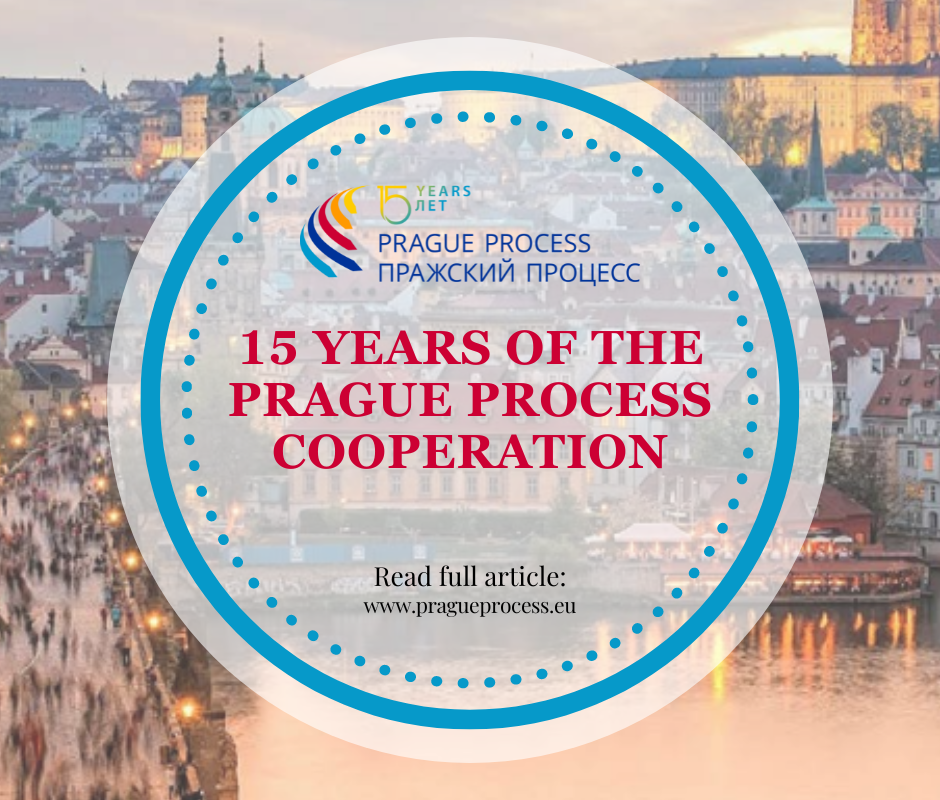This year constitutes the Prague Process’ 15th anniversary and thereby an opportunity to reflect upon the origins and evolution of the Process since its establishment in 2009.
The journey commenced after nearly a year of groundwork in 2008, culminating in the official initiation of the intergovernmental dialogue on migration known as the Prague Process during the inaugural Ministerial Conference in Prague on 27-28 April 2009organised by the Czech EU Presidency within the EU-funded Building Migration Partnerships initiative. The launch of the Prague Process coincided with the genesis of the Eastern Partnership, which took off in Prague a mere month after the Prague Process Ministerial Conference. The endorsement of the Prague Process Joint Declaration marked the beginning of the cooperation among the Prague Process countries, giving the impetus to approximation of differing migration systems and approaches within this distinct geographic context.
In November 2011, the second Ministerial Conference ‘Building Migration Partnerships in Action’ adopted the Action Plan 2012-2016, adding the area of asylum and international protection to the list of thematic priorities of the 50 participating states. The period following the second Ministerial Conference saw the implementation of the 4,5-year Prague Process Targeted Initiative, including its seven Pilot Projects on the four priority areas of the Action Plan and the enhancement of the Knowledge Base, at the time consisting of Migration Profiles Light and the i-Map. The ‘Eastern Partnership cooperation in the fight against irregular migration’ (EaP – SIPPAP) and the ‘European-Russian Integration Standards’ (ERIS project) were equally implemented under the Prague Process umbrella in this period.
The adoption of the Ministerial Declaration in Bratislava in September 2016 kicked off the third phase of cooperation, marked by the establishment of the Prague Process Migration Observatory and Training Academy. Expanding its institutional framework, this phase underscored the evolution and deepening of the Process’s foundations. The third Prague Process Ministerial Conference ‘Addressing Challenges Together’ coincided with a UN meeting in New York that launched the Global Compact on Migration, highlighting a synchronicity in addressing migration issues across geographies.
The current Phase of cooperation is shaped by the Ministerial Declaration 2022 and the Prague Process Action Plan 2023-2027 adopted at the 4th Prague Process Ministerial Conference ‘Migration Partnerships - Way forward in times of new challenges’, hosted by the Czech EU Presidency in October 2022. This phase signifies an expanded scope of collaborative efforts and more operational cooperation through introduction of four designated Thematic Components on key priority areas of the Action Plan. Acknowledging present realities and pressing challenges that require joint solutions, the Prague Process cooperation of today emphasises information sharing, capacity building, enhanced preparedness and digitalisation as essential pillars of work.

Over the years, the Prague Process has seen significant strides in the approximation of legal systems and national practices. This alignment, coupled with the continuous exchange of knowledge and experience, stands as a testament to the Process's success. Under the chairmanship of the Czech Republic (2009-2011), Poland (2012-2016), Lithuania (2017-2020) and again the Czech Republic as of 2021, the Prague Process has served as a platform for dialogue on migration on various levels as well as a laboratory for generating new ideas, approaches and best practices aligned to priorities in a broad spectrum of areas of migration.
Read more about the inception of the Prague Process here.



